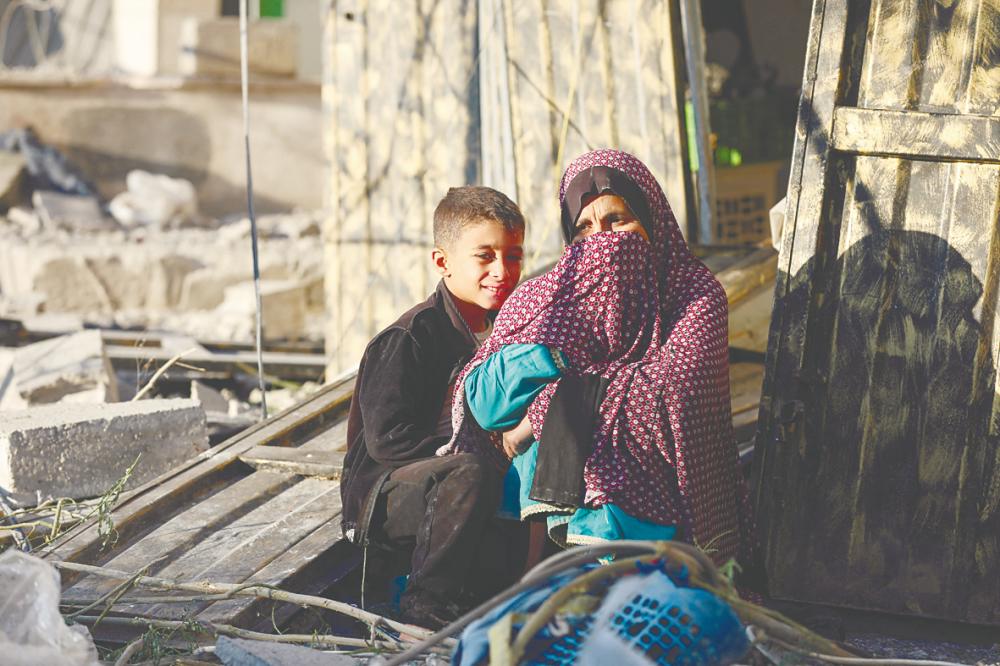AS the wars in Ukraine and Gaza grind to a halt and uneasy peace settles, who are the winners and losers; and what lessons can the world take away from the wars and their aftermath?
First, there are no victors among the combatants – military, political or from any other summation – despite what
so-called independent Western and allied Asian media may lead their readers to believe.
Apart from those killed fighting the wars, what is more appalling has been the impact on those directly or indirectly in the path of the rockets, missiles and other military weaponry unleashed in war and non-war zones.
Ukrainians, Russians, Palestinians, Lebanese, Israelis – all are casualties, victims and losers, with estimates running into several millions and still counting.
Gaza’s Health Ministry has stated that the real Palestinian toll is higher, as thousands of bodies remain buried
under rubble or in areas that medics cannot access.
In Ukraine, The Economist newspaper, citing leaked or published intelligence reports, defence officials, researchers and open-source intelligence, reported that Ukraine and Russia have lost a greater share of their populations than the US did during the Korean and Vietnam wars combined.
The paper may have been indirectly paying tribute to President Joe Biden’s credo of fighting Russia “to the last Ukrainian”.
Casualties in the millions
Although still lionised by US and Western allies as indomitable fighters of freedom, peace and security, the leaders of Ukraine and Israel – Volodymyr Zelensky and Benjamin Netanyahu – are unlikely to be remembered favourably by history or even their own people.
Both leaders not only failed to pursue but also spurned offers of peace for the longest time and were insistent that they could win military victories. Their intransigence and refusal to sit at the negotiation table is now coming to an end.
Zelensky will soon find that his new position, following Donald Trump’s presidential victory, is too little too late in terms of the enormity of the cost to Ukraine, which has a reconstruction programme that will stretch for several decades ahead.
As for Netanyahu, his repeated promise of “war without end” and refusal to accept a Palestinian state will especially backfire on Israel’s future generation, if not renounced by the next Israeli leader.
Role of US, MIC and Nato
The real winners of the wars are the US and the Western military-industrial complexes (MIC). A report in the Spanish paper El Pais noted that the market value of the main military equipment manufacturers in the US and Europe has skyrocketed over the past two and a half years in the wake of the two wars.
This was confirmed by a study from the financial and strategic consultancy organisation, Accuracy, which analysed the performance of the seven main US companies in the industry and their European counterparts from the North Atlantic Treaty Organisation member countries (Nato).
Not coincidentally, Nato played a key role in the Ukraine war initially by extending its membership to former Soviet Union countries beyond what had been agreed by American and European leaders to their Russian counterparts. It has more blood on its hands in Ukraine than commonly known.
The recent declassification of documents dating back to 1990 reveal that security assurances against Nato expansion were made to Soviet leaders by James Baker, George Bush, Hans-Dietrich Genscher, Helmut Kohl, Robert Gates, François Mitterrand, Margaret Thatcher, Douglas Hurd, John Major and Manfred Woerner. Soviet leaders then were Mikhail Gorbachev and Eduard Shevardnadze.
This chapter of Nato-Russian relations, following the breakup of the Soviet Union and the reunification of Germany, provides a different analysis of the origins of the war in which Western leaders and the media point to Russian President Vladimir Putin as the aggressor and instigator, and insist that the blame is entirely on the Russian side while Nato is an innocent and unwilling stake player.
Following the Russian advance into Ukraine in February 2022, Nato member countries have mobilised a massive inflow of military and non-military assistance to Ukraine, the intention
and effect of which has been to keep Volodymyr Zelensky away from the negotiation table.
According to the Accuracy report,
the stock market capitalisation of
the military-dependent companies – mislabelled to the public as defence companies when in fact their products are multipurpose – had increased by 59.7% from Feb 24, 2022, when the war in Ukraine began, to March 2024. The rise is much higher than that of the benchmark stock market indexes on both sides of
the Atlantic (S&P 500 and Euro Stoxx 50), which in the same period recorded increases of just over 13% and 7%, respectively.
US companies that are winners in the market, according to the report,
are Honeywell International, RTX Corporation, Lockheed Martin, Northrop Grumman, General Dynamics, L3Harris and Huntington Ingalls.
On the European side, the winner list of companies included France’s Safran, Dassault Aviation and Thales; the UK’s BAE Systems; Germany’s Rheinmetall; Italy’s Leonardo; and Norway’s Kongsberg Gruppen.
According to Ignacio Lliso, a partner at Accuracy, the companies they selected were those whose activity is heavily influenced by the “defence” sector.
The findings of the study accord with that of the Stockholm International Peace Research Institute, which found that global military spending in 2023 was US$2,443 billion (RM10,871 billion), a 6.8% increase from 2022. This was the largest increase since 2009.
The average military expenditure as a share of government expenditure was 6.9% in 2023 and world military spending per person was US$306, the highest since 1990.
Pressure for new wars to feed and strengthen the MIC and defence companies of the world will continue unabated. All that is required are leaders such as those currently entrenched, who are intent on pursuing the new Cold War version of “freedom, peace and security”.
Lim Teck Ghee’s Another Take is aimed at demystifying social orthodoxy. Comments: letters@thesundaily.com









